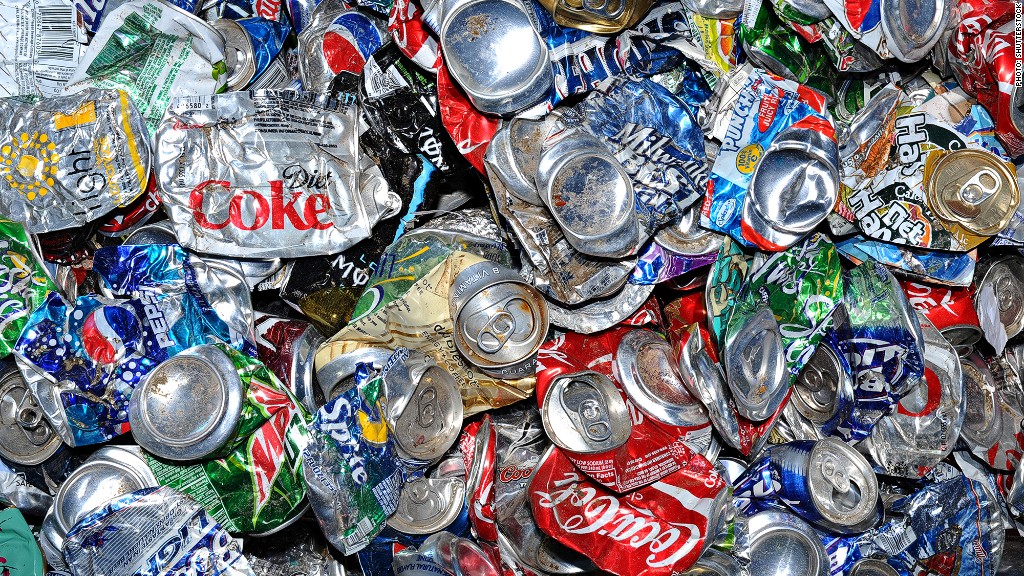
Goldman Sachs has been trying to distance itself from the "vampire squid" image it developed during the financial crisis. The findings of a Senate investigation into commodities market rigging probably won't help.
According to the report, Wall Street banks may have manipulated commodity prices in recent years, raising costs on consumers. The investigation looked into the holdings and dealings of Goldman (GS), JPMorgan Chase (JPM) and Morgan Stanley (MS) in physical commodities.
Banks have long been involved in trading commodities, but recently they've become major players in the transport and storage of commodities like aluminum, copper, and uranium
The report found that in some cases, the banks "used their physical commodity activities to influence or even manipulate commodity prices."
Market jamming: The probe zeroed in on Goldman's ties to aluminum, a key metal involved in everything from soda and beer cans to manufacturing cars and jets.
Goldman encouraged its clients to move aluminum around for one warehouse to another, the report said. The bank even went as far as offering cash incentives to do so.
The deals, referred to as "merry-go-round" transactions by the report, helped cause unprecedented backlogs. Some metal owners to wait up to about two years to get their metal out of storage, the report claimed.
The long lines drove prices higher and made it harder for aluminum buyers to hedge their price risks. Some industrial aluminum users claimed the dysfunction inflated aluminum costs by $3 billion, the report said.
In testimony before the Senate panel on Thursday, Chris Wibbelman, the head of Goldman's warehouse operation known as Metro International, said these transactions have been characterized "incorrectly."
He said the warehouse company "does not benefit from queues"and that the queues were caused by the decisions of metal owners, not Metro.
Goldman noted that there is no shortage of aluminum and prices have tumbled significantly in recent years. While Goldman is looking to sell Metro, the bank isn't completely retreating from the physical commodities business.
Related: Six banks fined more than $4B in currency probe
Bailout risk: As if possible manipulation wasn't bad enough, the Senate probe found that these banks' physical commodity activities put them at risk of needing another taxpayer-funded bailout.
That's because the firms failed to protect themselves against the risk of a catastrophic event like an oil spill or mine explosion that could leave them on the hook for serious liabilities, similar to what happened with "toxic assets" during the financial crisis of 2008.
"More is needed to safeguard the U.S. financial system and protect taxpayers from being forced to bailout large financial institutions involved with physical commodities," the report found.
Related: 5 ways fraudsters trick investors
In testimony on Thursday, Morgan Stanley said there are "real and significant" public benefits to allowing banks to be active in physical commodities.
JPMorgan executives told lawmakers that the bank has already sold much of its physical commodities assets and business. He said that going forward, JPMorgan plans to focus on its financial derivatives business, not physical commodities.


